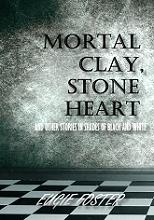airikblade, who obviously was paying attention to the “networking” section of my talk, very kindly provided me with the email addresses of Ann’s Beginner’s Writers Workshop students so I could email them the handout that I was supposed to get to them last Friday.
In an effort to make amends for my egregious lapse, I told them I’d answer any further questions they had about marketing short stories to the best of my ability on my blog. Herein the first of them:
Q: I have a humorous story in the form of a collection of letters with a science fiction twist and a story that is about 18,000 characters that I am working on. Could you suggest the best place to send humor?
A: Most places, except for perhaps those ‘zines which specialize in gritty, dark horror, are delighted to see well-written humor. I’ve frequently heard that F&SF is always on the lookout for good, humorous works, and Realms of Fantasy often publishes tongue-in-cheek tales (although it’s not the place I’d recommend sending science fiction). If your story is appropriate for a YA audience, Cicada is also open to and eager for humor.
For short story markets that specialize in humorous or “lite” speculative fiction, there’s Andromeda Spaceways Inflight Magazine and The Town Drunk (of which I’m the Asst. Managing Editor).
Q: I haven’t started checking submission guidelines yet but I’m assuming longer stories do better with online zines.
A: Not necessarily. While it’s true that ezines don’t have the same space constraints that paper publications do, there’s a readability factor. Many people don’t like reading off a monitor and so eschew longer works online.
As it turns out, the “Big Four” print ‘zines have pretty generous maximum word counts. Asimov’s takes up to 15K, Analog takes up to 80K (for serials), F&SF takes up to 25K, and Realms of Fantasy takes up to 10K.
Q: I was also wondering if I had heard you correctly when I thought you said that if you had no credentials yet, it was better to omit a cover letter if none was required by submission guidelines.
A: Yep. If you don’t have anything to say in your cover letter, get out of the way and let your story sell itself. Obviously, if the guidelines ask for one, then provide one.








